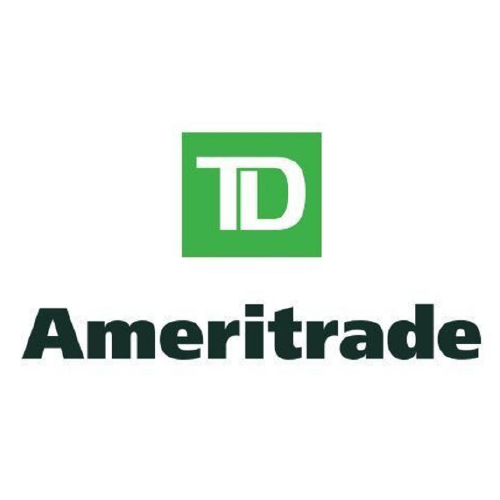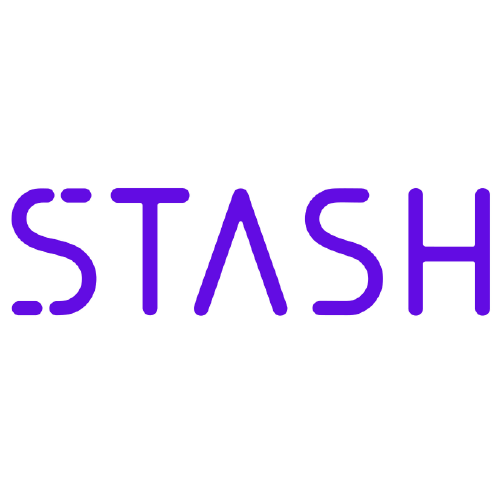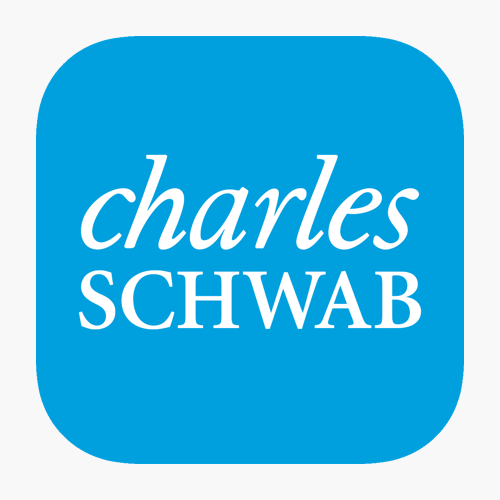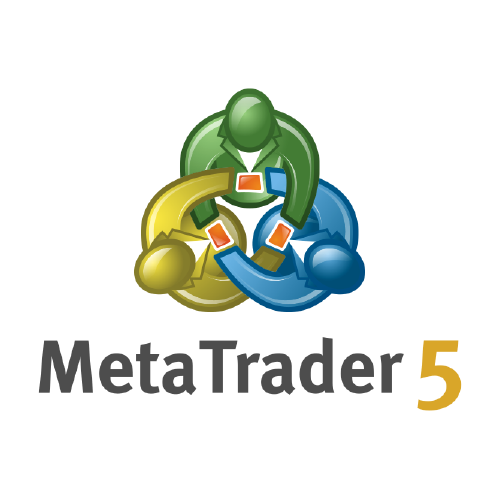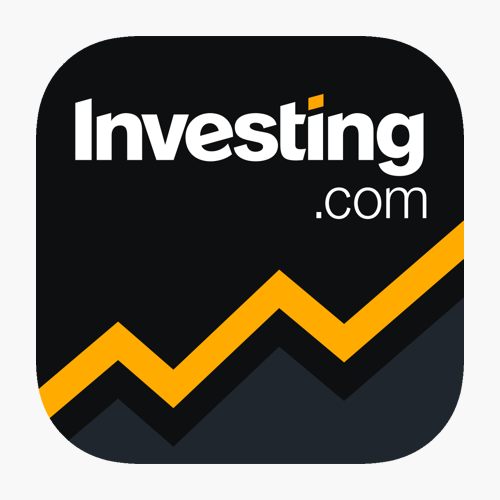
Forex Trading Course
Whilst independent research is valuable, an online course allows you to gain a comprehensive introduction to the forex market whilst avoiding some of the costly mistakes beginner traders make.
Forex trading is particularly fast-paced and risky, so it is especially important to have a solid base knowledge before trading with your hard-earned cash.
In forex, traders make money through currency fluctuations. It is crucial to have an operational knowledge of investment strategies and predicting currency trends, as well as a logistical knowledge of brokers and trading platforms, spreads, transaction costs and leverage. Understanding the risks involved and how to set up a forex risk management strategy – including stop-losses – is also integral to forex success over the long-term. As an extremely volatile market, without adequate knowledge or training, it is easy to make large losses in forex very quickly. Online forex courses are delivered in different ways, some as MOOC style courses, some with smaller cohorts and some with accompanying mentorship options.
The content may be wide-ranging to give a general introduction or tailored to focus on a particular technical aspect of forex trading. Prices vary, as does value for money.
It can be difficult to know where to start when looking for a course, particularly if you are very new to the subject area. This article will give a run-through of the 14 best online forex trading courses.
The Best Trading Platforms
Let’s take a look at the best trading to earn more.
1. Liteforex
Best for: Learning from others
Liteforex is one of the most popular online reliable brokers over the world. Over the past 15 years, it has developed a strong reputation for beginners and experienced investors alike, has a minimum $100 deposit.
The Liteforex app aims to use easy for every clients. It is available on Google Play and the App Store and allows you to move seamlessly between devices.
It’s innovative features include:
- Pre-programmed one-click trading
- Copy Trader – Copy the trades of others in real-time
- Its own social networking platform
- Pre provided investment strategies which they call Copy Portfolios
The app boasts the ability to allow you to place online trades even if the trading platform is down.
The information is being presented without consideration of the investment objectives, risk tolerance, or financial circumstances of any specific investor and might not be suitable for all investors.
2. FXTM
The FXTM Platform itself is intuitive and easy to use, suitable for those just getting into trading and those more experienced alike.
It is designed to offer a full replication of an institutional trading environment including depth of market.
With advanced risk management and order functionality, this is a detailed platform for trading stocks.
The FXTM app offers a premium range of order types, with advanced technical analysis tools.
You can set up push and email notifications for the important things that you want to know in relation to your stock trading needs – such as price alerts and trade statistics.
Within the app, you can:
- Complete a range of order types
- Work with all your accounts in one app
- Understand detailed trade analysis
- Review detailed order tickets – base currency dollar value and pip distance
As a platform, there are comprehensive educational videos and explanations of symbols, so you can find optimized processing for expert advisors and indicators.
The information is being presented without consideration of the investment objectives, risk tolerance, or financial circumstances of any specific investor and might not be suitable for all investors.
3. FBS
Best for: CFDs
This app is designed for those wanting to trade outside of the US. It is considered one of the best for CFDs on shares and has a minimum $100 deposit.
There are low trading fees but considerable fees for inactive users.
The educational section is average, as are the research tools. However, the app is easy to use overall.
This app is recommended for those familiar with CFDs and who are actively trading. Reviews of the app show that users like the:
- Account-opening process
- Deposit and withdrawal features
- Customer service
- Actual trading platform
The information is being presented without consideration of the investment objectives, risk tolerance, or financial circumstances of any specific investor and might not be suitable for all investors.
What to Look for in a Good Forex Trading Course
Below are some of the main aspects to consider:
How Does the Course Deliver the Learning?
Some forex courses will deliver content via video and practical demonstrations, some through written explanations or a mixture of practical and theoretical tasks to work through.
Some may also have social/support platforms where students can learn from each other.
The online educational tools on offer will vary according to the course provider. Look for a course which appeals to your learning style.
An engaging course which delivers content in innovative ways will help to keep the learning experience enjoyable and hold your attention.
Who Is Teaching the Course?
Credentials are key and should be carefully checked, as should the reliability and quality of the content they are delivering.
Before signing up to any course, ensure the offering is legitimate.
Cross-checking reviews from a variety of websites is a good way to confirm the veracity and quality of a course.
The aesthetics of a course website are often an indicator of the professionalism of the offering – spelling and grammar mistakes, odd formatting, illogical structuring or poor design are all red flags – but it is worth doing some background research on the provider and tutor to ensure you are placing your money and learning experience in reliable hands.
What Content Is Included?
Some courses are tailored to complete beginners, whilst others assume an existing level of forex knowledge.
It is sensible to conduct your research with an idea of the topics you would like to cover, then you can sense-check the course content against your expectations for a forex course.
You might want to focus on strengthening a particular aspect of your trading; if so, look for a course with tailored content.
Another important aspect to check is that the course is up to date. Content should be refreshed regularly to capture new developments and learning.
It is also worth seeing if the content is downloadable so you can learn on the move. If needs be, check that the course materials are optimised for and will open on mobile devices.
The best courses will provide a channel for you to ask questions before purchase. Make sure you ask any questions you have upfront to ensure you are signing up for the experience you expect and investing wisely in your forex future.
What Is the Support Package Like?
This is often achieved through chat rooms or support platforms that provide space for students to raise any questions in a safe space. This provides an invaluable opportunity to connect and learn from each other.
Check the access agreement to the course.
The most valuable courses provide access to the course after completion (sometimes lifetime access) so, if you ever need to, you can return and review what you have learned at a later date.
Some courses will also provide access to particular trading simulators or platforms. Look into the access being offered and whether this is in line with your expectations.
The one-on-one time you have with the course tutor will also differ greatly. It is good to know how much of the course will be delivered by the advertised tutor, whether they will be the one marking your tasks/overseeing your progress and how much of an opportunity there will be for interaction and personal feedback.
Final Thoughts
Course content is delivered in easy to follow sections arranged in a logical manner and students benefit from the expertise of professional forex traders and access to live trading demonstrations. This saves both time and money when compared to relying on independent forex research.
From our research into forex courses, the most highly reviewed course providers deliver their material through a membership-style platform. This creates a supportive community, delivering regularly updated content and an evolving learning process that ensures you are supported well beyond the length of the original course offer.
Lifetime access to a course is repeatedly found to be particularly valuable as it means you can return to review the material.
Interaction with the course tutor during the course and follow-on support after completion sets courses apart and helps to ensure trading success over the long-term.
Choosing the right forex trading course for you will be a personal choice based on your own criteria and learning preferences.
It is worth remembering that all paid course websites are trying to sell you their particular course, so researching independent reviews and gaining insight into the experience of previous students is invaluable. It is important to make an informed decision on which course to invest your time and money.
Taking an online trading course should only be the beginning of your forex education. To be successful in the market long-term, you should continue to be an active learner, keeping up to date with economic news and developments that may impact and require a refresh of your trading strategies.
Myanfx-edu does not provide tax, investment or financial services and advice. The information is being presented without consideration of the investment objectives, risk tolerance, or financial circumstances of any specific investor and might not be suitable for all investors.
Financial Trading is not suitable for all investors & involved Risky. If you through with this link and trade we may earn some commission.
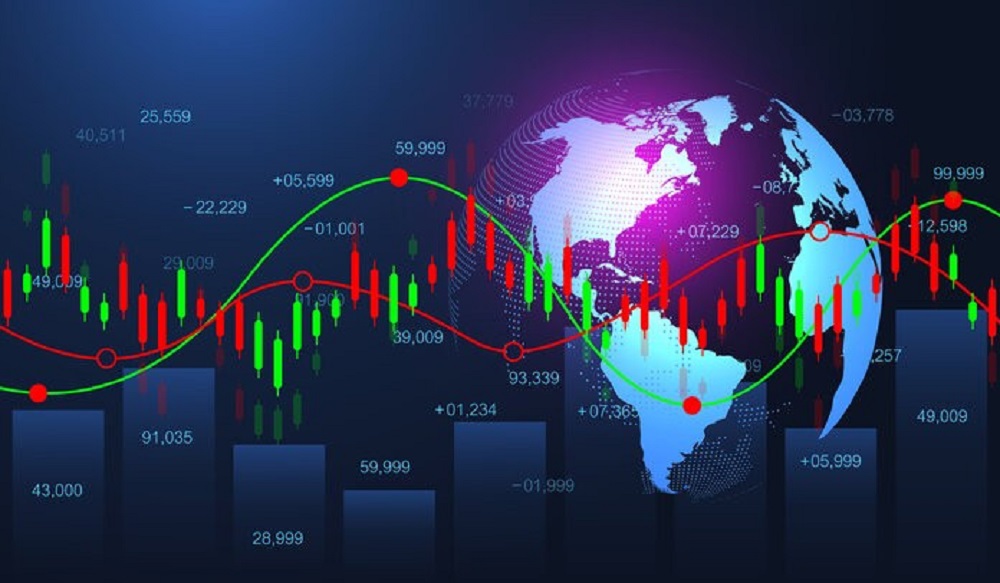
Forex Market
TABLE OF CONTENTS
- What Is the Forex Market?
- Understanding the Forex Market
- History of the Forex Market
- Type of Forex Markets
- Big Players in the Forex Market
- Pros and Cons of Forex Trading
- Forex Market FAQs
- The Bottom Line
What Is the Forex Market?
The forex market allows participants, such as banks and individuals, to buy, sell or exchange currencies for both hedging and speculative purposes. The foreign exchange (forex) market is the largest financial market in the world and is made up of banks, commercial companies, central banks, investment management firms, hedge funds, retail forex brokers, and investors.
KEY TAKEAWAYS
- The forex market allows participants, including banks, funds, and individuals to buy, sell or exchange currencies for both hedging and speculative purposes.
- The forex market operates 24 hours, 5.5 days a week, and is responsible for trillions of dollars in daily trading activity.
- Forex trading can provide high returns but also brings high risk.
- The forex market is made up of two levels: the interbank market and the over-the-counter (OTC) market.
- Many forex accounts can be opened with as little as $100.
Understanding the Forex Market
The forex market is not dominated by a single market exchange, but a global network of computers and brokers from around the world. Forex brokers act as market makers as well and may post bid and ask prices for a currency pair that differs from the most competitive bid in the market.
The forex market is made up of two levels—the interbank market and the over-the-counter (OTC) market. The interbank market is where large banks trade currencies for purposes such as hedging, balance sheet adjustments, and on behalf of clients. The OTC market, on the other hand, is where individuals trade through online platforms and brokers.
Daily Turned Over $6.6 Trillion.
The number of daily forex transactions registered in April 2019, according to the 2019 Triennial Central Bank Survey of FX and OTC derivatives markets.
From Monday morning in Asia to Friday afternoon in New York, the forex market is a 24-hour market, meaning it does not close overnight. The forex market opens from Sunday at 5 p.m. EST to Friday at 4 p.m. EST.
This differs from markets such as equities, bonds, and commodities, which all close for a period of time, generally in the late afternoon EST. However, as with most things, there are exceptions. Some emerging market currencies close for a period of time during the trading day.
History of the Forex Market
Up until World War I, currencies were pegged to precious metals, such as gold and silver. Then, after the Second World War, the system collapsed and was replaced by the Bretton Woods agreement. That agreement resulted in the creation of three international organizations to facilitate economic activity across the globe. They were the following:
- International Monetary Fund (IMF)
- General Agreement on Tariffs and Trade (GATT)
- International Bank for Reconstruction and Development (IBRD)
The new system also replaced gold with the U.S. dollar as a peg for international currencies. The U.S. government promised to back up dollar supplies with equivalent gold reserves. But the Bretton Woods system became redundant in 1971 when U.S. President Richard Nixon announced a “temporary” suspension of the dollar’s convertibility into gold.
Currencies are now free to choose their own peg and their value is determined by supply and demand in international markets.
Type of Forex Markets
Three are three key types of forex markets: spot, forward, and futures.
Spot Forex Market
The spot market is the immediate exchange of currency between buyers and sellers at the current exchange rate. The spot market makes up much of the currency trading.
The key participants in the spot market include commercial, investment, and central banks, as well as dealers, brokers, and speculators. Large commercial and investment banks make up a major portion of spot trades, trading not only for themselves but also for their customers.
Forward Forex Market
In the forward markets, two parties agree to trade a currency for a set price and quantity at some future date. No money exchanges hands when the deal is made. The two parties can be companies, individuals, governments, or the like. Forward markets are useful for hedging.
On the downside, forward markets lack centralized trading and are relatively illiquid (since there are just the two parties). As well, there is counter-party risk, which is that the other part will default.
Futures Forex Market
Future markets are similar to forward markets in terms of basic function. However, the big difference is that future markets use centralized exchanges. Thanks to centralized exchanges, there are no counter-party risks for either party. This helps ensure future markets are highly liquid, especially compared to forward markets.
Big Players in the Forex Market
The U.S. dollar is by far the most-traded currency. The second is the euro and the third is the Japanese yen. JPMorgan Chase is the largest trader in the forex market. Chase has 10.8% of the global forex market share. They have been the market leader for three years now. UBS is in second, with 8.1% of the market share. XTX Markets, Deutsche Bank, and Citigroup made up the remaining places in the top five.
Advantages and Disadvantages of Forex Trading
Forex markets have key advantages, but this type of trading doesn’t come without disadvantages.
Pros
- Lots of flexibility, trading almost 24/7
- Plenty of trading options
- Low transaction costs
Cons
- Lack of regulation increases counterparty risk
- High leverage amounts allowed
- Operational risk
Advantages
One of the biggest advantages of forex trading is the lack of restrictions and inherent flexibility. There’s a very large amount of trading volume and markets are open almost 24/7. With that, people who work nine-to-five jobs can also partake in trading at night or on the weekends (unlike the stock market).
There’s a large amount of optionality when it comes to available trading options. There are hundreds of currency pairs, and there are various types of agreements, such as a future or spot agreement. The costs for transactions are generally very low versus other markets and the allowed leverage is among the highest of all financial markets, which can magnify gains (as well as losses).
Disadvantages
With forex markets, there are leverage risks—the same leverage that offers advantages. Forex trading allows for large amounts of leverage. The leverage allowed is 20-30 times and can offer outsized returns, but can also mean large losses quickly.
Although the fact that it operates nearly 24 hours a day can be a positive for some, it also means that some traders will have to use algorithms or trading programs to protect their investments while they are away. This adds to operational risks and can increase costs.
The other major disadvantage is counterparty risk, where regulating Forex markets can be difficult, given it’s an international market that trades almost constantly. There is no central exchange that guarantees a trade, which means there could be default risk.
Forex Market FAQs
What Exactly Is Forex Trading?
Forex trading is the exchange of one currency for another. Forex trading is the trading of currency pairs—buying one currency while at the same time selling another.
Can You Get Rich by Trading Forex?
Forex trading can make you rich, but it’ll likely require deep pockets to do so. That is, hedge funds often have the skills and available funds to make forex trading highly profitable. However, for individual and retail investors, forex trading can be profitable but it’s also very risky.
How Do I Start Trading Forex?
To get started in forex trading, the first step is to learn about forex trading. This includes developing knowledge of the currency markets and specifics of forex trading. It also takes a brokerage account set up for forex trading. One of the more important things from there is setting up a trading strategy, which includes the amount of money you’re willing to risk.
How Much Do You Need to Start Trading Forex?
In most cases, you can open and trade via forex account for as little as $100. Of course, the higher the amount you can invest the greater the potential upside. Many recommend investing at least $1,000 and even $5,000 to properly implement a strategy.
Can I Trade Forex with $100?
It is possible to open and trade forex with just $100—depending on the minimum amount to open a forex account. Some brokers have a minimum deposit requirement of as little as $5 or $10.
The Bottom Line
Forex trading offers several advantages over other markets, such as flexibility with types of contracts and near 24/7 trading. It also allows investors to leverage their trades by 20 to 30 times, which can magnify gains. On the downside, this leverage can also lead to major losses fast.
Myanfx-edu does not provide tax, investment or financial services and advice. The information is being presented without consideration of the investment objectives, risk tolerance, or financial circumstances of any specific investor and might not be suitable for all investors.
Financial Trading is not suitable for all investors & involved Risky. If you through with this link and trade we may earn some commission.
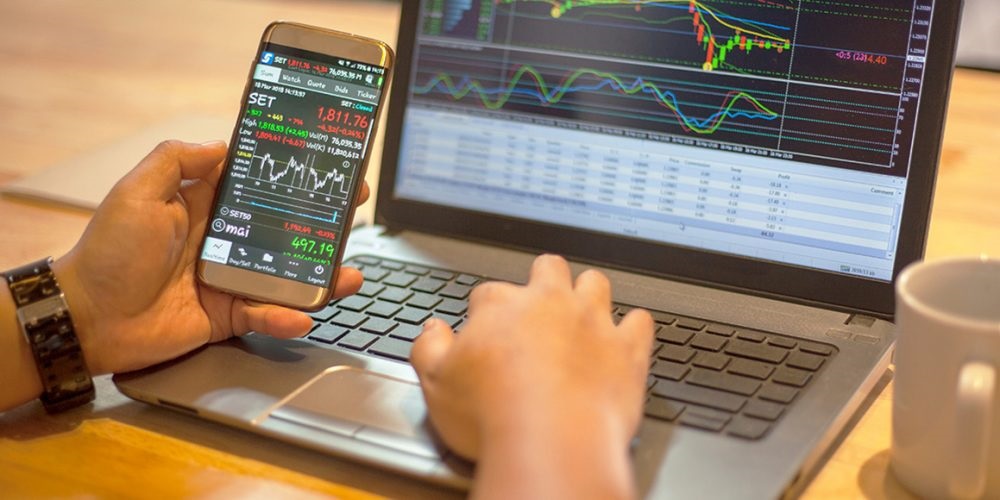
What Are the Benefits of Forex Trading?
- 10 Main Benefits of Forex Trading
- 1. It’s a Large and Global Market
- 2. It’s Good for Beginners
- 3. You Can Trade 24 Hours a Day
- 4. There Are Low Transaction Costs
- 5. You Can Benefit from Leverage
- 6. It’s a Market with High Liquidity
- 7. Volatility of the Forex Market
- 8. You Can Buy or Sell Currency Pairs Depending on the Market
- 9. There’s Good Technology for Trading
- 10. It’s Well Regulated
- Final Thoughts
Foreign exchange trading, commonly referred to as forex trading, is the practice of buying and selling currency values with the aim of making a profit. As a global market, forex trading is conducted all over the world, with the largest markets located in major financial centers including New York, London, Tokyo and Hong Kong.
The forex market is vast and consists of numerous entities including banks, financial/business institutions and brokers, all speculating on the movement of currency pairs. It is also becoming increasingly popular with retail and hobbyist traders owing to its accessibility and suitability for beginners.
If you’re interested in forex trading and are considering it as a potential investment, you’ll need to make sure that it’s the right market for your individual circumstances. This article will look at the main benefits of forex trading, hopefully giving you a good idea of whether or not it’s right for you.
10 Main Benefits of Forex Trading
Every trader is likely to cite different reasons to trade forex, and there’s a lot of information out there relating to this particular market. We advise that you reference multiple sources thoroughly before making any final decision on your next steps.
That said, here are our thoughts on the top benefits of forex trading.
It’s a Large and Global Market
When it comes to the benefits of trading forex, its sheer size and scale sit at the top of the list.
As the world’s largest financial market, in excess of $4 trillion USD is exchanged on average per day. Traders in all corners of the world are buying and selling currency pairs at all hours, making forex a truly global marketplace with plenty of scope for profitability.
It’s the breadth of the market that contributes to many of the benefits of forex trading, including accessibility, liquidity, volatility, technology and trading hours.
It’s Good for Beginners
Accessibility is one of the biggest advantages of forex trading. Compared to other markets, it is relatively easy to enter and does not require a large initial investment, explaining its popularity with hobbyist traders.
However, regardless of the amount of capital you put down, successful trading takes knowledge and skill.
Free demo accounts allow you to practice trading forex without risk, essentially providing a ‘try before you buy’ test run. By simulating a live trading environment, demo accounts give you the chance to get used to a trading platform, familiarise yourself with market movements and develop a risk management strategy, all without making any financial commitments.
Most brokers offer demo accounts so if you’re considering trading forex, be sure to take full advantage of these tools first.
You Can Trade 24 Hours a Day
The rolling hours of the market are another of the main advantages of forex trading. Foreign exchange takes place over-the-counter (OTC), meaning transactions are made directly between trading parties, facilitated by a forex broker.
Since it operates this way, forex trading is not subject to the opening hours of any centralised exchange system. As long as there’s a market open somewhere in the world, deals can take place.
In the UK, trading begins at 9 p.m. on Sunday with the opening of the Sydney market and rolls continuously until close of session in New York at 10 p.m. on a Friday.
While the forex market is closed to retail traders over the weekend, it’s important to note that rates will continue to move, and you should factor this into your trading strategy to mitigate any potential risk.
There Are Low Transaction Costs
Not only does the forex market require little capital for entry, but there are also low transaction costs once you’re in. Typically, brokers make money from spreads, which are measured in pips and factored into the price of a currency pair.
Note: Pip stands for ‘point in percentage’ and is the unit of measurement used to show a change in one currency’s value against another.
When a broker offers you a currency pair, they’ll quote a bid (sell) price and an ask (buy) price, the pip difference between the two indicates the spread, the associated value of which you’ll pay the broker for facilitating the trade.
Spreads are usually low, making forex trading relatively cheap. However, you should look into all associated costs when choosing a broker, as some may also charge a flat fee or variable commission.
You Can Benefit From Leverage
Of all the reasons to trade forex, the availability of leverage is perhaps the most appealing as it allows you to open a high position with a relatively small amount of capital.
Most forex brokers permit retail traders to put down a deposit and borrow against this in order to control a much higher stake, similar to placing a deposit down for a mortgage when dealing in property.
Your available leverage will be expressed as a ratio, with most regulated forex brokers limiting maximum leverage for retail traders, with 1:30 and 1:50 being common. So, if you took advantage of 1:50 leverage, you could trade up to £50 for every £1 of capital in your account.
Whilst this opens up the potential for increased profit, it can also lead to greater losses, so leverage should always be used with caution.
It’s a Market With High Liquidity
In trading terms, liquidity refers to the ease with which an asset can be bought or sold with limited effect on its value. In a nutshell, this depends on how active a particular market is. The global scale of foreign exchange combined with the high volume and 24-hour activity, make the forex market the most liquid market in the trading world.
What this means to you as a trader is that if you’re dealing in major currency pairs such as GBP/USD or EUR/GBP, your assets can easily be exchanged with little variance to their value.
This may seem counterproductive, as little variance means little profit, but with a strong trading strategy, this liquidity allows you to trade effectively with minimal risk. Forex liquidity falls when you move into minor or exotic currency pairs but equally, so potential profit margins can be much higher.
Ultimately, the path you choose to take comes down to your approach to risk management and your confidence in your market predictions.

Volatility of the Forex Market
The forex market is influenced by a number of external factors, including but not limited to:
- The economic stability of a given country
- The global economy as a whole
- Political news, events and policies
- Trade deals
- Natural disasters
This can make it highly volatile at times, meaning there can be significant movements in currency values and, subsequently, the opportunity to make a substantial profit. Though this could be seen as one of the advantages of forex trading, it also comes with a high level of risk, since movement can occur in either direction.
Volatility is strongly linked to liquidity, and the more liquid major currency pairs tend to be less volatile. Some major currency pairs, such as Australian Dollar/US Dollar (AUD/USD) and Canadian Dollar/Japanese Yen (CAD/JPY) are subject to more volatility, as are emerging market currencies.
Ultimately, if you’re looking to take advantage of market volatility, you need to tailor your strategy to any potential risk.
You Can Buy or Sell Currency Pairs Depending on the Market
The ultimate goal of any form of trading is to buy low and sell high, turning a profit on your initial investment. One of the benefits of forex trading is that you have the option to either buy or sell currency pairs depending on the state of the market.
In forex trading terms, this is known as going long or short.
- If your instinct tells you a currency pair is likely to increase in value, you would go long; for example, you would buy the pair based on a prediction of the base currency rising against the quote currency.
- You would go short if your predictions went the other way; for example, you would sell the pair if you thought the base currency was likely to fall in value against the quote currency.
In the stock market, this directional trading usually requires significant investments as it has high associated costs. Thanks to low transaction fees and liquidity, however, foreign exchange allows for easy directional trading in line with market trends.
There’s Good Technology for Trading
Compared to other markets, such as those dealing in stocks and shares, forex trading is a relatively new practice. As such, it has been quicker to adapt to the technological advancements of the trading world.
Its decentralised nature means connectivity is vital to its existence and software developers continue to improve on the platforms available to forex traders.
Innovations in mobile applications, trading algorithms and global connectivity, including the rollout of 5G, continue to make it easier for individuals to trade effectively in real time from anywhere in the world, making technology one of the major benefits of forex trading.
It’s Well Regulated
As it takes place in a global and digital landscape, the regulation of foreign exchange is no easy task. Thankfully, though, this works in a trader’s favour and can actually be considered one of the advantages of forex trading. Since there’s no centralised exchange system, independent bodies are responsible for regulation in respective countries. In the UK, this role falls primarily to the Financial Conduct Authority (FCA).
This consumer watchdog ensures that UK brokers are licensed and follow strict guidelines that protect the interests of forex traders using their services. So, although it comes with an element of risk, as with any form of trading, using a UK-regulated forex broker will give you peace of mind that its activities will be fair, transparent and tightly monitored.
Final Thoughts
There are many benefits to forex trading but, as with any market, there are also associated risks and it should not be entered into lightly. Whilst this article has covered the main advantages of forex trading, it’s also vital that you familiarise yourself with the potential pitfalls to ensure it’s the right decision for you.
Forex trading is not a get-rich-quick scheme. Rather, it is a long-term strategy that requires knowledge and a keen understanding of how global events can affect the market.
Before you commit to any form of financial investment, you should carry out extensive research and ensure you understand the ins and outs of the market, are familiar with all related technical terms and are comfortable taking speculative risks with your capital.
Myanfx-edu does not provide tax, investment or financial services and advice. The information is being presented without consideration of the investment objectives, risk tolerance, or financial circumstances of any specific investor and might not be suitable for all investors.
Financial Trading is not suitable for all investors & involved Risky. If you through with this link and trade we may earn some commission.
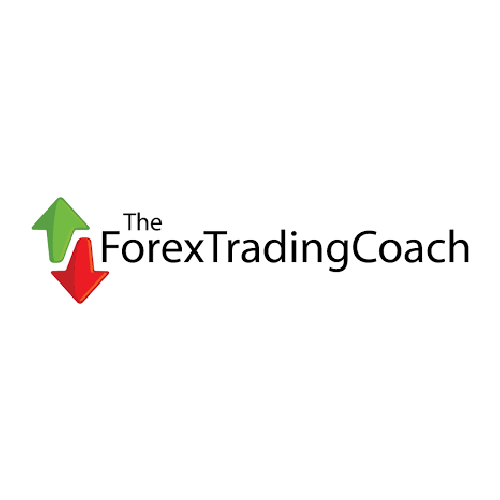
Best for: Traders of all abilities looking to improvePrice: Not stated, enquires

Best for: Complete beginners on a budgetPrice: Free, if you register for

Best for: Automated trading (those who want to use forex robots)Price: Usually

Best for: Personal tuition Thomas Kralow is a seasoned investor who has

Best for: Forex beginners looking for a comprehensive startPrice: Usually £44.99 (appears

Best for: Beginner to Advanced tradersPrice: $997 Ezekiel Chew the founder at Asia

Best for: Reliable coaching-based training Established in 2003 by veteran trader
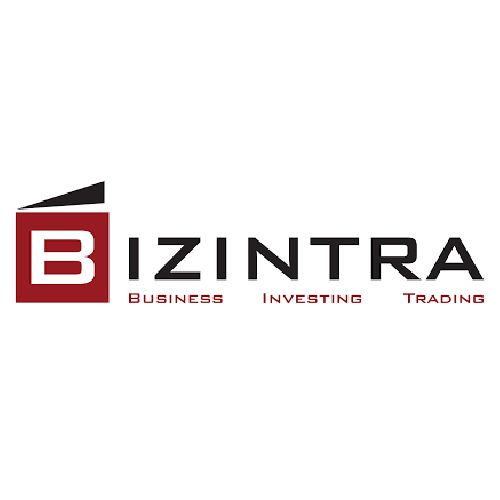
Best for: New tradersPrice: £199 BizInTra’s beginner trading course helps new traders

Best for: Developing your skillsPrice: Initially free, there may be some paid
Want to Trade Online?
Easy Trading Platform
Copy Experienced Traders
Trade from Your Pocket
Trade with Liteforex
- Best Mobile App
- Free Trading Courses
- Low Fees
- Fast Execution
- 24/7 Customer Support
CFD Trading on financial markets carries risks. Before deciding to trade, you need to ensure that you understand the risks involved.









